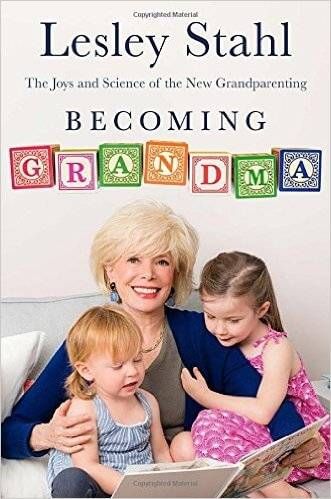A Place to Live for Grandparents Raising Grandchildren
The Grandparent Family Apartment offers housing and support for both
(Next Avenue invited all our 2016 Influencers in Aging to write essays about the one thing they would like to change about aging. Lesley Stahl provided the following excerpt from her book Becoming Grandma: The Joys and Science of the New Grandparenting.)
There are nearly three million grandparents in the United States who have legal custody of their grandchildren. A sizable share of them (18 percent) live below the poverty line. One of their many vexations is where to live. While there is subsidized housing for the elderly, children are usually not allowed. Overnight, a grandmother might have to take in five kids, in which case she would be forced to move.
I learned about this problem in 2009, when I did a story with two of my favorite 60 Minutes producers, Shari Finkelstein and Jennie Held, about a free after-school program in Harlem called Gospel for Teens. We started the shoot by going to auditions for the year’s 46 slots. The majority of the kids who tried out were African-Americans, living in rough neighborhoods.
At Gospel for Teens, the kids have to shout out their names and where they live. Rhonda Rodriguez was so withdrawn she could barely whisper, and yet, because she sang This Little Light of Mine with riveting plaintiveness, she made the cut. We decided to focus on her in our story.
Interviewing her hurt. At 14, she exhaled dejection. In her forsaken little voice, she told us that she lived in the South Bronx in a very special building. When I asked why it was special, she said, “It’s just for grandparents who are raising their grandchildren.”
“Are you being raised by your grandparents?” I asked.
“I’m being raised by my great-grandmother.” Her great-grandmother. That meant neither her mother nor her father, nor any of her grandparents, had stepped in.
Grandparent Family Apartments
When we looked into the building, called the Grandparent Family Apartments, we learned it was constructed and funded by the city in 2004, in the heart of one of New York’s lowest-income neighborhoods with one of the highest crime rates. When I went for a visit on a hot, steamy day in August 2014, I walked into a forest of tenements with exposed fire escapes, passing a playground where shirtless boys were playing basketball without a net and four old men were sitting in lawn chairs on the sidewalk in front of a Lucky 99 Cent Store. I thought I’d wandered into The Wire. The clean, brightly painted six-story grandparents’ building looked like someone who came to a party way overdressed.

I was buzzed in. The building has 24-hour-security — for good reason. Even with crime rates declining in New York City, this area still teems with drugs, and gunfire is an all-too-common punctuation mark of daily life. In February 2010, two of the children from the building were injured (not killed) in separate random street shootings.
Forty-five of the 50 apartments were headed by single grandmothers or great-grandmothers. I was told it’s the only building of its kind in the United States. Rhonda was living comfortably in a two-bedroom apartment with her great-grandmother Carmen Rivera, who she calls Abuelita, “Grandma” in Spanish. When I met Carmen, she told me right up front: “I’m not the kind of grandmother that mopes around. Nope. I have a life. And I still raised my two kids, my two grandkids and my two great-grandkids — so far.”
What stood out was Carmen’s sturdiness. She was wearing a blue fleece over tan slacks with white sneakers, no jewelry and no makeup. Except for her gray hair, you wouldn’t have guessed she was 71.
She’d been raising Rhonda since before she was 1. Rhonda’s mother had her at 15 and started out taking care of her. But soon, said Carmen, “I saw things I didn’t like. Before Social Services could intervene, I took it upon myself to go to court for custody.” The judge told Carmen she would be eligible for roughly $11,000 a year if she took Rhonda as a foster child. But she said, “I didn’t feel that was right.” She forfeited the financial support, but was rewarded when she was accepted into the building in 2005, the year it opened. …
On-site Support
Grandparents become guardians for a variety of reasons, none of them pretty. I met a young man in the Bronx building who had moved in with his grandmother after his mother died of leukemia. In other cases, the parents are incarcerated or are drug addicts or have mental illness or have been accused of abuse. Or they simply leave.
The building offers the grandparents an array of services: legal assistance, transportation, mental health care, support groups and excursions, such as one recently to a casino. Perhaps most important, there are parent classes with lessons on how to talk about sex and drugs and how to respond when a child says, “You’re not my mother.”
The building serves both the old and the young, so there are also after-school programs and tutors to help with homework. Report cards for all the children are sent to the office, where the grades are monitored. Seventy-four percent of the kids graduate from high school or obtain the GED. That compares with 49 percent in their school district and 59 percent in the Bronx as a whole.
“Most of our kids do really well, said the building manager Rimas Jasin, “though we’ve had one or two who’ve gone to jail, gotten pregnant or gotten hooked on drugs. But they’re in the small minority.”

